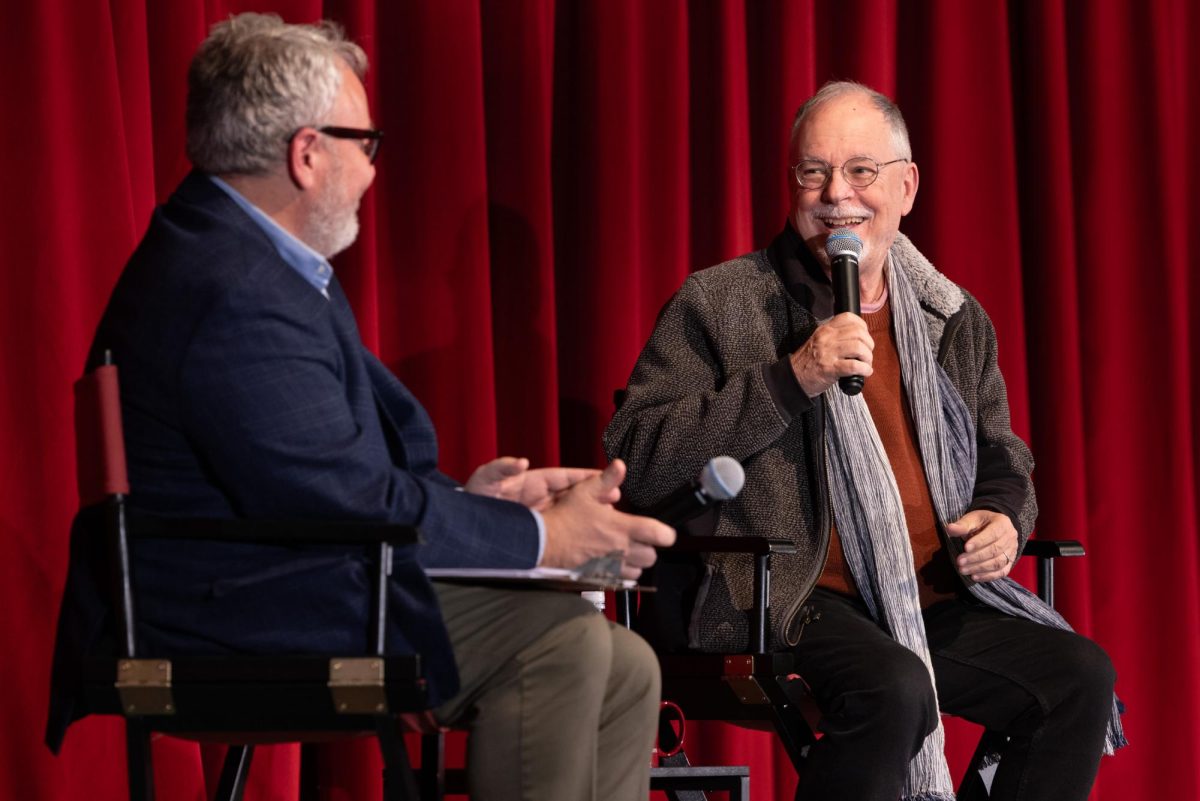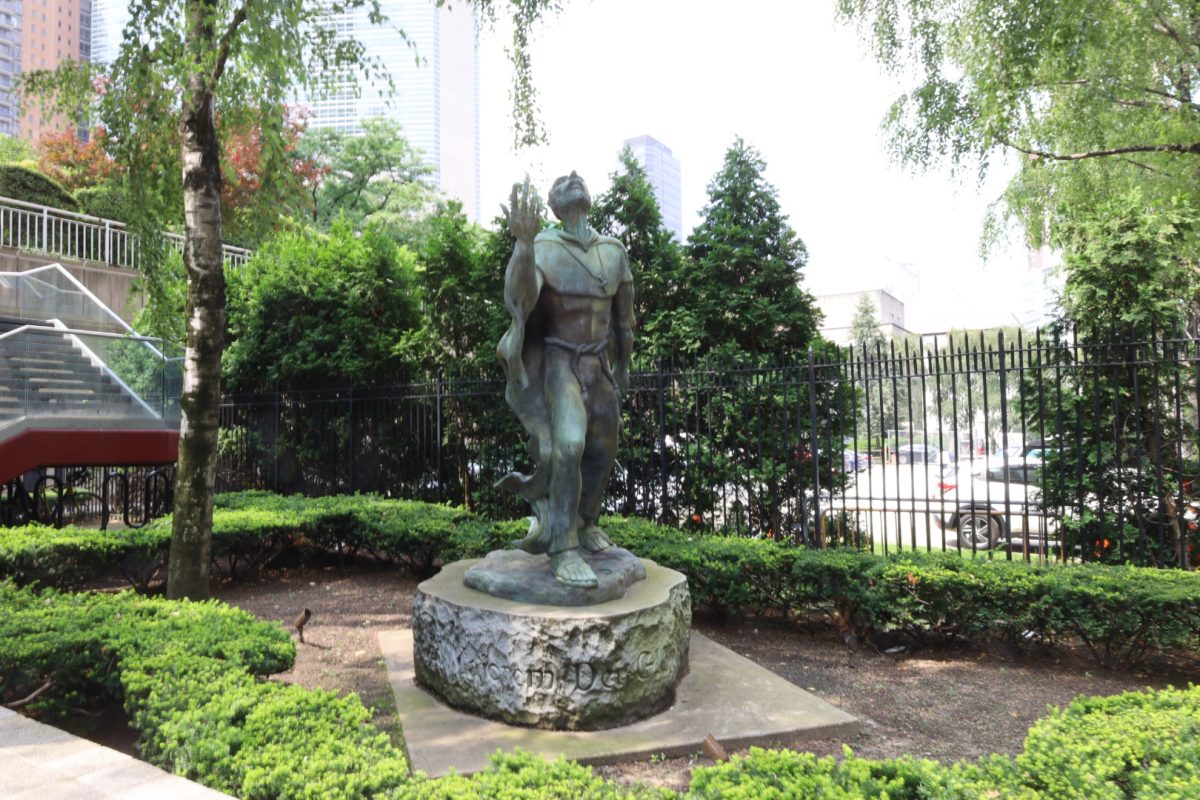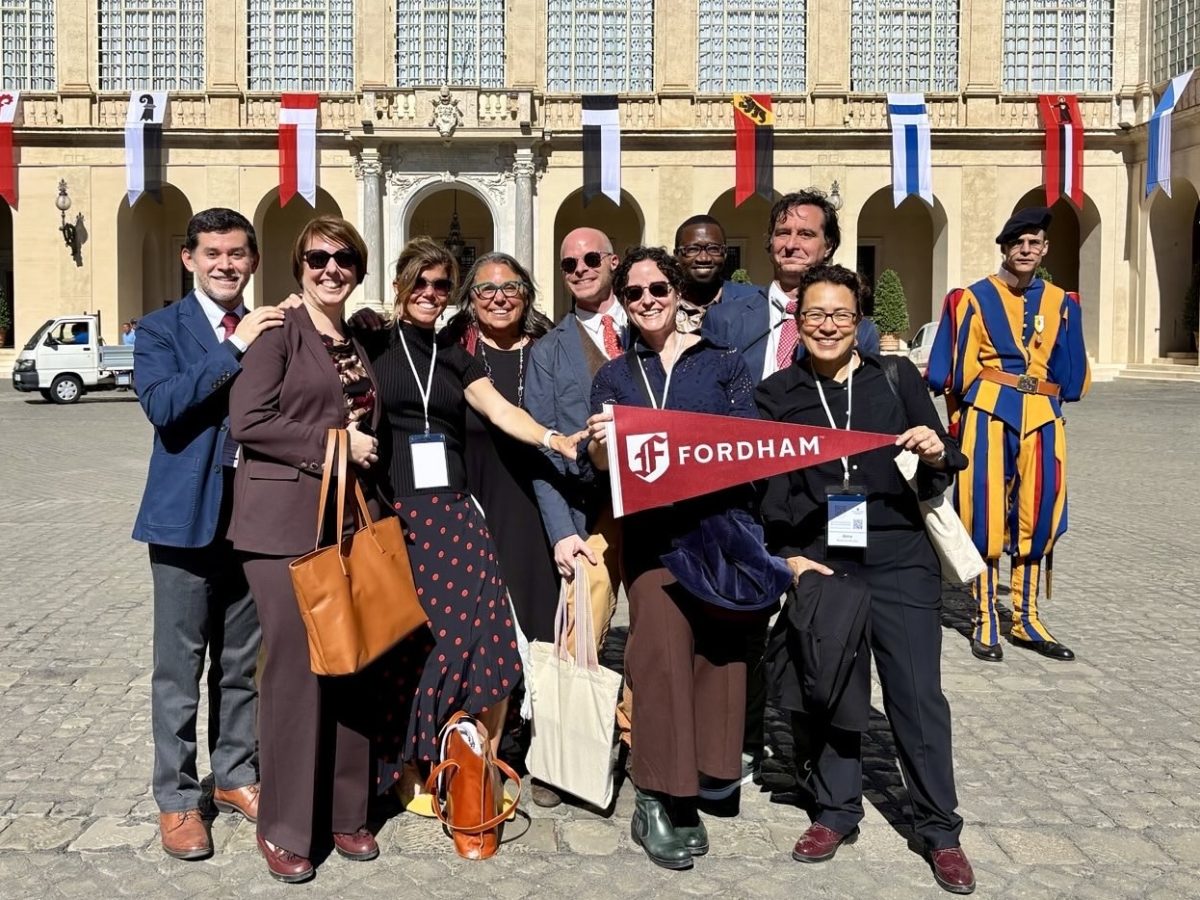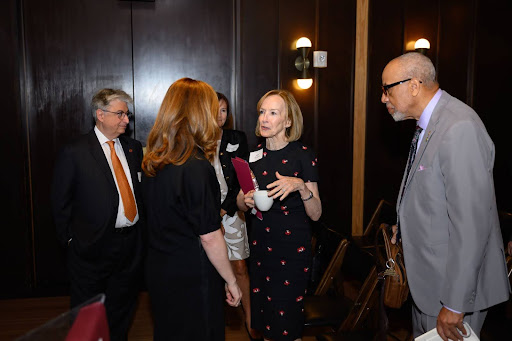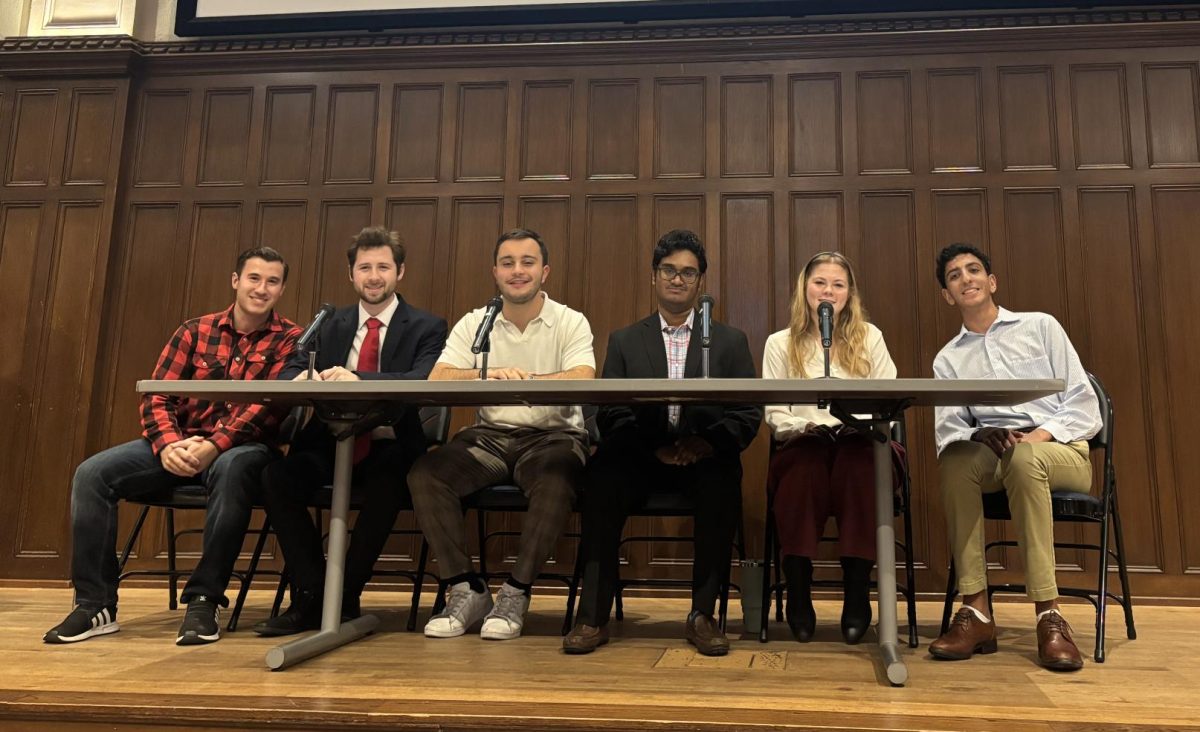By Theresa Schliep

While different media are available for news consumption, from television and web to newspapers and documentaries, “the only thing that has not changed is how to tell the story,” said acclaimed journalist Bob Dotson to a crowd of Fordham students.
On Monday, Feb. 22., Bob Dotson, NBC News correspondent, New York Times best selling author and eight-time Emmy Award winner held a talk in a McGinley music room about his 40-year career in journalism and the evolution of the industry through the decades.
Dotson’s new book, “Make it Memorable” was available for sale and signing.
Hosted by the department of communications and media studies, the discussion was intended for students who were interested in pursuing careers in communications.
Dotson began the discussion and asked, “Are you worried that the golden age of whatever you want to get into is two weeks before you joined?”
Students were then invited to ask questions about journalism, careers in media and Dotson’s own career.
Dotson detailed his experience in media. He retired on Oct. 23, 2015, 40 years to the day of his hiring at NBC News as a news correspondent. Throughout his career, he received a variety of awards and honors and worked in different areas of media including print, literature, radio and television.
Through his career, Dotson has received over 100 journalism prizes, including eight Emmy Awards.
His niche for 35 years was “The American Story with Bob Dotson,” which explored the country in order to show “ordinary people who did extraordinary things.”
“I have done over four thousand stories in America and traveled over 400 million miles,” said Dotson. “I have visited every state in the Union.”
Dotson said that what was important was not being the first to report a story, but rather to report on what might have been missed.
“Hey, you got their attention and you, this story is about you,” said Dotson. “You do not want to just tell people what you saw, but what they might have missed if they were standing right next to you.”
Dotson described a turbulent first five years after graudation, describing how he had finished graduate school in the midst of the Vietnam War.
“Everyone was trying not to get shot during Vietnam,” he commented. “We tried to stay in school as long as we could.”
After he graduated from Syracuse University, he sent his resume to 520 television stations and two offered him a job. He accepted a job at a news station in Oklahoma City. When he arrived at the news station, the staff had no women or minorities. Therefore, the station was threatened with the loss of its license.
“I wanted to do a documentary on black history in Oklahoma,” said Dotson. “Turns out there were 28 black towns in Oklahoma settled by ex-slaves.”
After this work, Dotson was given the title of Special Projects Director. This led to a career in media in which Dotson claims he won many small victories that contributed to his craft, like removing a lens cap for the first time.
“All of us were expected to edit it, all of us were expected to film, all of us were expected to write,” said Dotson.
Dotson incorporated various anecdotes of his time both domestic and abroad, such as when he reporting in Central America as a war correspondent. He warned against committing to cliches.
“Everyone was dressing in their old Vietnam uniforms, while I wore a regular shirt,” Dotson said. “It was during the revolution, and people would come running up to me in Spanish saying, ‘We’re gonna kill you’ and I would ask, ‘Do you know where I can buy a good hammock?’” He said this enabled him to get to know local communities.
Dotson lastly professed his passion for his profession, and said “My favorite story ever written? The next one.”



































































































































































































